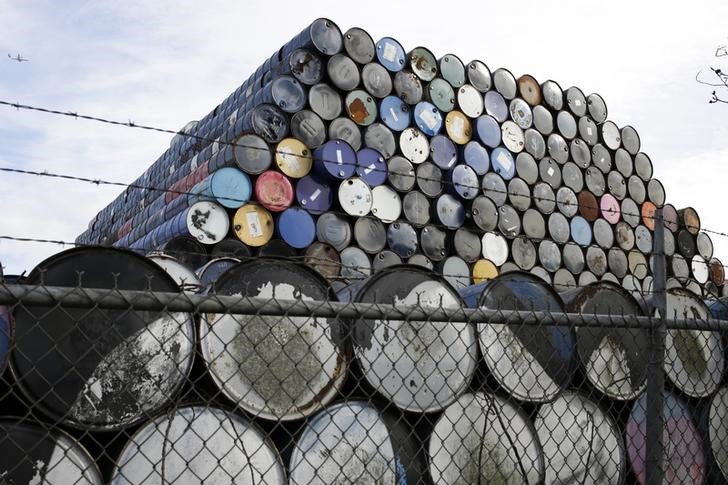Investing.com - U.S. crude oil inventories rose more than expected last week, paring earlier price gains as the larger-than-forecast build reinforced concerns of oversupply.
The EIA data showed that crude oil inventories increased by 4.85 million barrels in the week to Nov. 16.
That was compared to forecasts for a stockpile build of 2.50 million barrels, after a build of 10.27 million barrels in the previous week.
The EIA report also showed that gasoline inventories fell by 1.30 million barrels, compared to expectations for a draw of 0.2 million barrels, while distillate stockpiles dropped by just 0.08 million barrels, compared to forecasts for a decrease of 2.75 million.
U.S. crude prices were trading up 1.22% to $54.08 a barrel by 10:36 AM ET (15:36 GMT), compared to $54.50 prior to the publication.
London-traded Brent crude futures were up 0.50% to $62.84 a barrel, compared to $63.34 ahead of the release.
After a 7% slide the previous day, oil prices had already been bouncing back prior to the report after U.S. President Donald Trump said the U.S. remains a “steadfast partner” with Saudi Arabia despite the killing of journalist Jamal Khashoggi.
On Tuesday, Trump released a statement in which he signalled that his administration would not take strong action against Saudi Arabia for the murder of journalist Jamal Khashoggi.
“In any case, our relationship is with the Kingdom of Saudi Arabia… After the US, Saudi Arabia is the largest oil producing nation in the world. They have worked closely with us and have been very responsive to my requests to keeping oil prices at reasonable levels – so important for the world,” Trump said in the statement.
Reports cited Trump as saying outside the White House on the same day, “If we broke with them [Saudi Arabia], I think your oil prices would go through the roof.”
On Wednesday, the president thanked Saudi Arabia for the recent decline in prices and urged even cheaper oil.
OPEC members are set to meet on Dec. 6 in Vienna, with a production cut expected to be agreed with non-OPEC members led by Russia in order to prop up the recent sharp selloff. Recent reports suggested that the cartel had moved from considering a reduction of 1 million barrels per day to 1.4 million.
